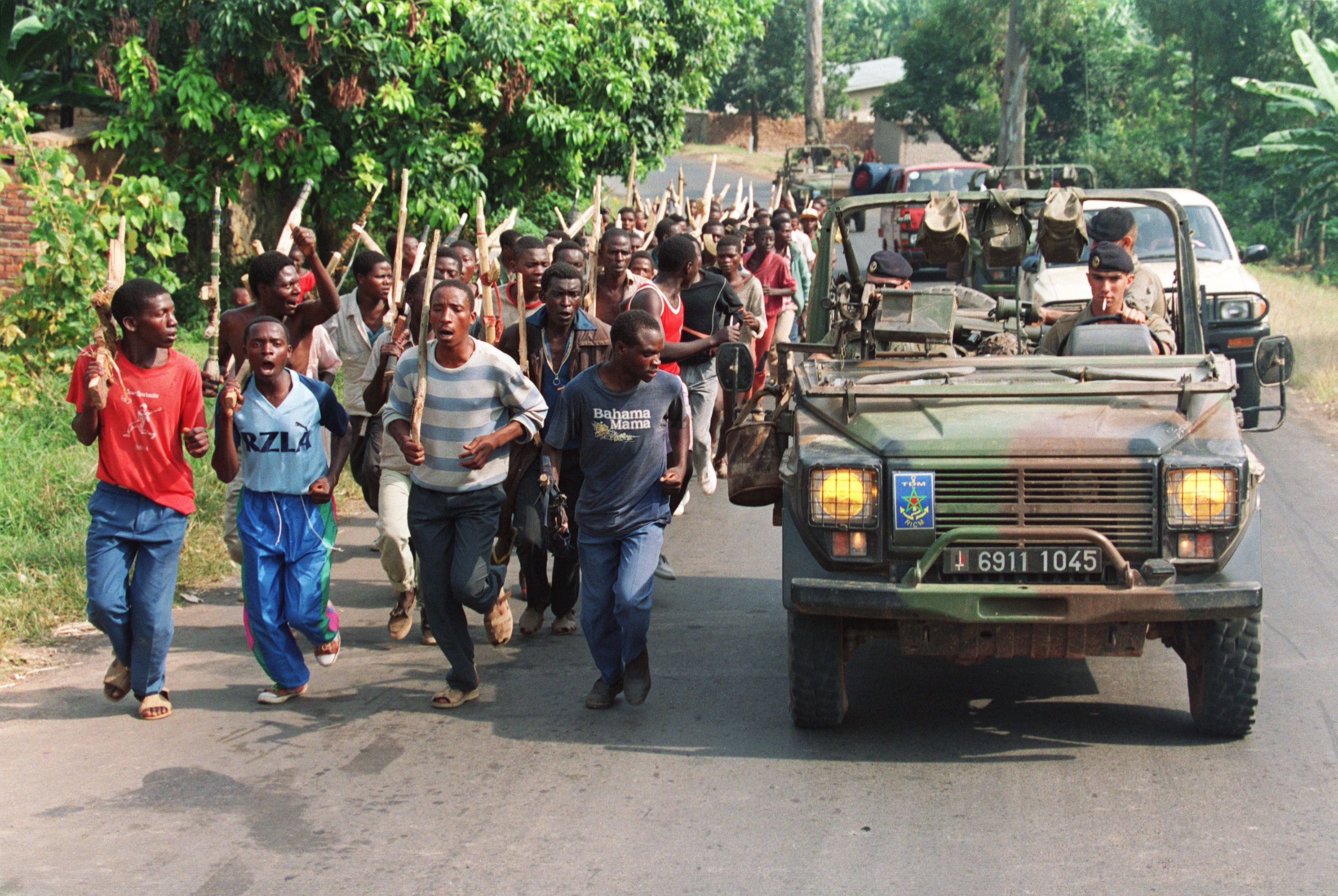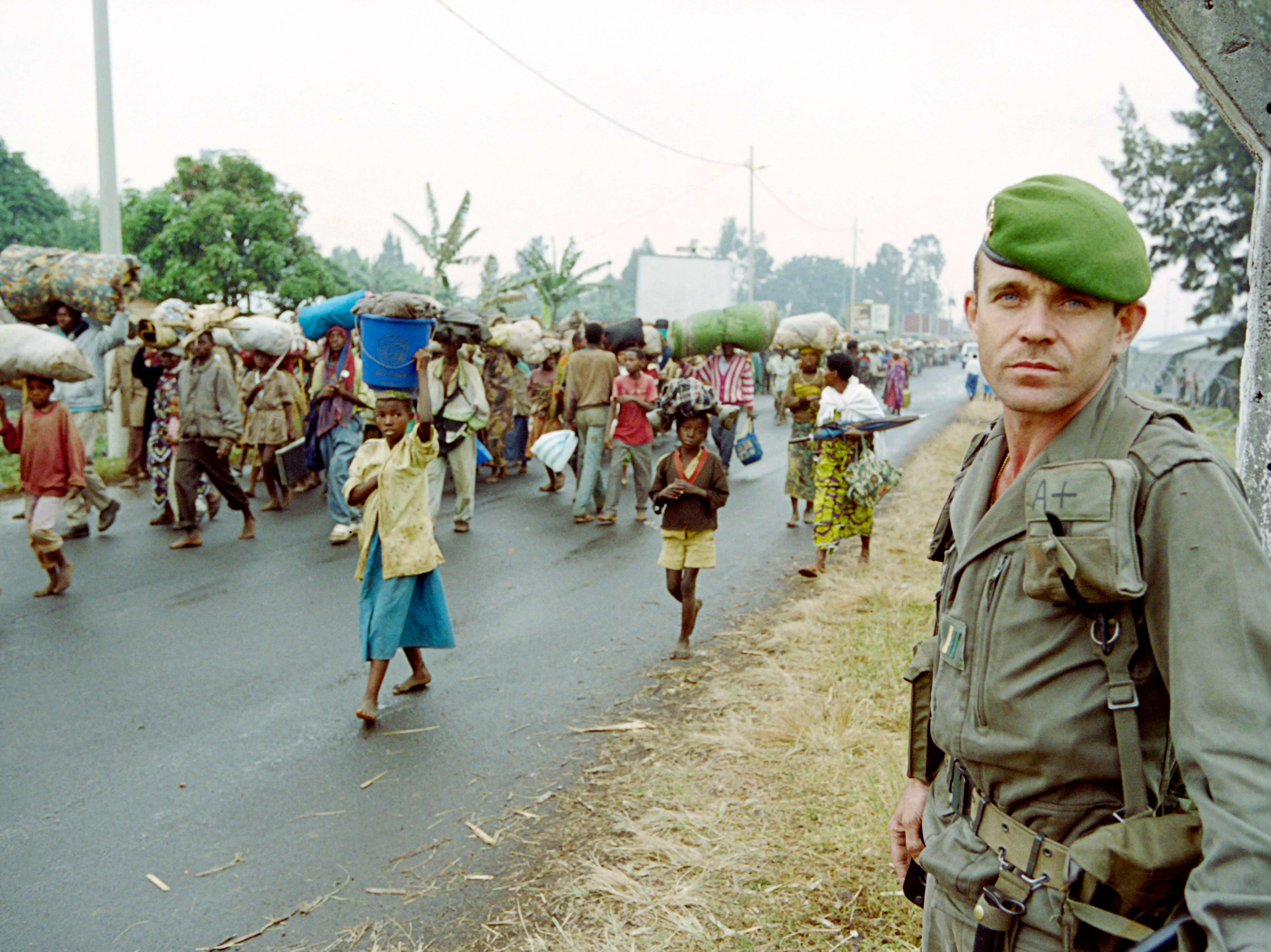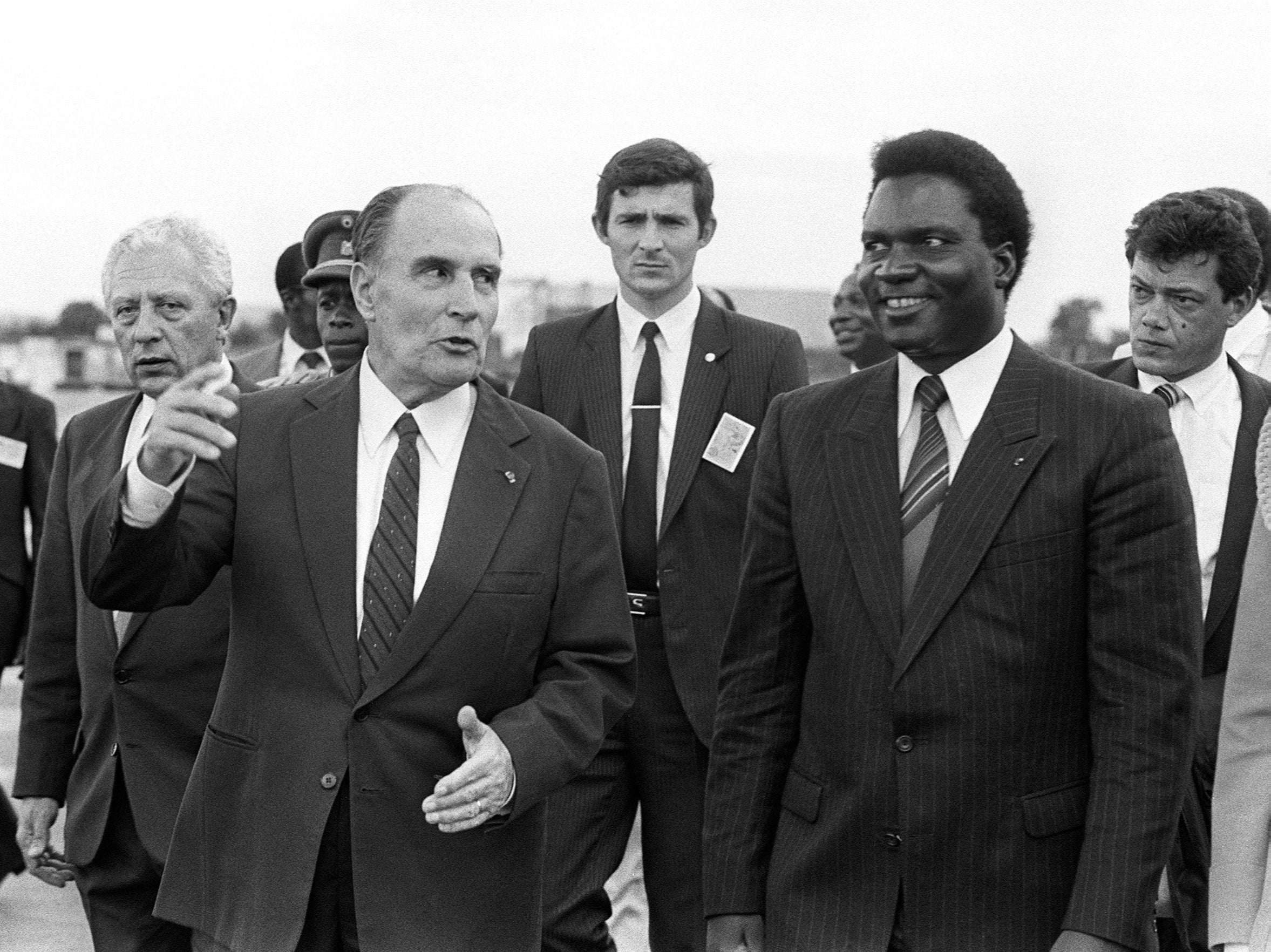Report on France’s role in Rwandan genocide set to be released
French president Emmanuel Macron will receive commission’s findings before making them public

A report on France’s role in the 1994 Rwandan genocide which left at least 800,000 people dead is set to be published.
Historians have been researching France’s links to the massacre for the last two years, amid long-standing claims the country could have done more to stop it.
French president Emmanuel Macron ordered a 15-member commission to be set up in 2019 and gave its members access to archives to analyse France’s role in Rwanda from 1990 to 1994.
The report will be handed to Mr Macron at 4.30pm (3.30pm GMT) on Friday, before it is made public, according to AFP.
The commission does not include any specialists on Rwanda, which the French presidency said was necessary to ensure neutrality, AFP reports.
Read more:
The historians instead include experts on the Holocaust and the mass killings of the Ottoman Armenians during the First World War, the agency said.
More than 800,000 ethnic Tutsi, and Hutus who tried to protect them, were killed over 100 days between 7 April and 15 July 1994.
The massacre was triggered on 6 April when a plane carrying Rwanda’s president Juvenal Habyarimana, who, like most Rwandans, was an ethnic Hutu, was shot down in Kigali, killing the leader.

The minority Tutsi community was blamed for downing the plane, which they denied, and Hutu extremists began killing them, as well as moderate Hutus.
About 70 per cent of the country’s Tutsi population was killed during the bloodshed.
In April 2020, just days before the 26th anniversary of the genocide, authorities in Rwanda discovered a mass grave thought to contain up to 30,000 bodies in a valley dam outside the capital of Kigali.

A public inquiry into France's role in the 1994 genocide held hearings in Kigali in 2006, where the French army was accused of complicity in massacres of Tutsi.
Rwanda has in the past also accused François Mitterrand, the then French president, and three former French prime ministers of being complicit in the genocide.
In 2011, a commission of inquiry set up by the government in Kigali accused Mr Mitterrand, Edouard Balladur, and two later prime ministers – Alain Juppé and Dominique de Villepin – of "political, military, diplomatic and logistic" support for the Hutu regime.
Join our commenting forum
Join thought-provoking conversations, follow other Independent readers and see their replies
Comments
Bookmark popover
Removed from bookmarks